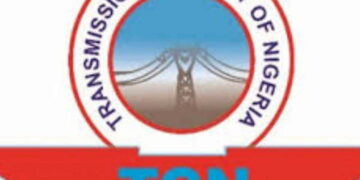The Minister of Communications, Innovation, and Digital Economy, Dr. Bosun Tijani, has disclosed that the rollout of the N3.3 trillion 90,000 kilometres of fibre lines, 7,000 Telecom Towers infrastructure nationwide will formally commence in Q4 2025.
Besides, he stated that the sector witnessed massive growth under President Bola Tinubu, attracting $191 million in Foreign Direct Investment (FDI) in Q1 2024—a ninefold increase from $22 million in Q1 2023.
This was as the Minister of Finance and Coordinating Minister of the Economy, Mr. Wale Edun, underscored the strategic role of the capital market in driving the federal government’s vision of a $1 trillion economy by 2030.
Likewise, the Minister of Budget and Economic Planning, Senator Abubakar Bagudu, yesterday said the country’s economic reforms embarked upon by Tinubu’s administration remained on schedule, recording significant progress.
Also, yesterday, analysts predicted a hold on monetary policy tools as the Monetary Policy Committee (MPC) of the Central Bank of Nigeria (CBN) unveils the outcome of its two-day meeting today.
Tijani made his remarks during an interview for an upcoming State House documentary to mark President Bola Tinubu’s second anniversary.
Tijani highlighted the sector’s robust workforce development, driven by the three Million Technical Talent (3MTT) programme, and revealed plans for a $2 billion initiative to deploy 90,000 kilometres of fibre optic infrastructure nationwide, starting in Q4 2025.
According to him, “These foundational reforms, coupled with advancements in artificial intelligence (AI) and the startup ecosystem, have positioned Nigeria as a global leader in the digital economy.”
Comparing FDI inflows, the statement from the Special Adviser to the President, (Information & Strategy), Bayo Onanuga said: “In Q1 2023, the sector had about $22 million; by Q1 2024, with this administration well underway, we reached $191 million. The trend continued in Q2, increasing from $25 million in 2023 to $114 million in 2024.”
The Minister stressed that the 3MTT programme, launched in October 2023, to create a tech-savvy workforce, has already trained over 117,000 Nigerians in digital skills, surpassing its initial target of 30,000.
“By last year, we had already moved that to over 117,000. With an additional 35,000 in training, the programme is nearing 10 percent of its three million goal. And in the rest of the time in office, we hope to reach the three million,” he said.
Regarding connectivity, Tijani announced that Project Bridge—focused on deploying 90,000 kilometres of fibre optic cable—will commence in the fourth quarter of this year.
“We are preparing a $2 billion investment to ensure every Nigerian can access affordable, high-quality connectivity regardless of location. Increasing connectivity hubs by just 10 percent could yield a 2.5 percent GDP growth,” he said.
Tijani celebrated Nigeria’s ranking among the world’s top 60 countries for AI readiness and developing a homegrown large language model (LLM).
He also highlighted the launch of the AI Collective platform, supported by leading partners including Pierre Omidyar, Google, and Microsoft, to foster collaboration and innovation in artificial intelligence.
For the first time in the country, the ministry has funded 55 academic researchers to explore technology applications in agriculture, healthcare, and education. In addition, N300 million was invested in 10 startups using AI and blockchain to enhance agricultural productivity.
On the Nigeria Startup House in San Francisco—an initiative targeting $5 billion in startup funding—Tijani said, “Our goal is to attract $5 billion in investments for Nigerian startups, supported by the Startup Pact and Trade Desk initiatives, which will connect local tech firms to global opportunities and government procurement.”
He revealed that over 500 government technologists have been trained in AI and Digital Public Infrastructure (DPI), and the groundbreaking Digital Economy Bill has passed its first reading in the National Assembly.
To bridge rural connectivity gaps, the Minister projected that 7,000 telecom towers would be deployed, targeting 98 percent nationwide coverage, adding that the Federal Executive Council had already approved the project.
He described the progress on Right-of-Way issues as a game-changer for the country, revealing that 12 states in the federation have adopted zero-rated Right-of-Way policies.
According to him, these efforts will support the National Broadband Plan’s goal of achieving 90 percent penetration by 2025, up from 48 percent in 2024.
He projected the sector’s GDP contribution to rise from 16 per cent to 22 per cent, stating: “If a sector can increase its contribution by three to four per cent to the GDP, we’re about to see the economic growth—we’ve not seen it before. Technology allows us to bridge the gap between governments and the people.”
Tijani said the government was not chasing quick wins, adding: “The results we want to provide for Nigeria are long-lasting reforms that will transform our economy for generations to come.”
Edun: Capital Market Strategic in Drive for $1tn Economy
Minister of Finance and Coordinating Minister of the Economy, Mr. Wale Edun, underscored the strategic role of the capital market in driving the federal government’s vision of a $1 economy by 2030.
He, therefore, urged capital market operators in the country to deepen investor confidence, improve financial literacy, and prepare for the implementation of ISA 2025 and a new Capital Market Master Plan (CMMP 2030)
The minister spoke at the first 2025 Capital Market Committee (CMC) meeting hosted by the Securities and Exchange Commission (SEC) in Lagos, Monday.
Edun, who was represented by the Minister of State for Finance, Dr. Doris Uzoka-Anite, explained that the capital market must become the primary engine for mobilising long-term finance across critical sectors ranging from infrastructure, housing, manufacturing, technology, and energy.
He said, “This vision is overdue. Nigeria had the potential to reach this milestone 20 years ago. With the reforms we’ve undertaken, including fuel subsidy removal, FX harmonisation, and tightening of the fiscal framework, the foundation is now set for private capital to power growth.”
He commended the passage of the Investment and Securities Act (ISA 2025), describing it as a landmark reform that modernises Nigeria’s regulatory environment to reflect global best practices.
The passage of the new Act, he argued, modernises the legal and regulatory framework, streamlines enforcement mechanisms, and provides clarity on emerging areas such as digital assets and crowdfunding.
Appraising the challenges and opportunities inherent in the Act, the minister said it would help deepen market participation, as well as ensure that regulatory coordination remains tight.
Bracing the Challenge of Airport Infrastructure Maintenance
Chinedu Eze One major challenge of public infrastructure is the quick depreciation of facilities due…
FSS Foundation Celebrates Diversity, Promotes Inclusion for Individuals with Autism
In a world where every individual deserves to be valued and empowered, the FSS Foundation…
He also noted that the implementation of the Capital Market Master Plan (2015-2025), has equally been instrumental in increasing the market’s contribution to the national economy, developing a sophisticated market structure, and improving competitiveness.
Edun said the revised plan prioritises digitalisation, innovation, sustainability, inclusion, and capital formation, aligning with the broader economic reform agenda.
He explained that with the Securities and Exchange Commission undertaking regulatory reforms, including joining the GBMC Network of IOSCO in promoting and implementing ISSB Standards among others, the domestic economy recorded the fastest GDP growth in about a decade in 2024, driven by a strong fourth quarter and improved fiscal position.
Highlighting the challenges of capital absorption and exit pathways, Edun stressed the need for robust frameworks to ensure that foreign and domestic capital can not only be attracted but also exited seamlessly.
“The real question we must ask is: If a billion-dollar investment enters this market, do we have the structure for it to exit smoothly? Until we can answer that, we can’t claim the market is truly ready,” he said.
Beyond market raising, he called on market participants to position the market as a genuine tool for wealth creation and inclusive development, while advocating for the establishment of a market literacy fund committed to supporting the SEC’s open-door policy.
He also challenged stakeholders to catalyse a transparent and predictable investment environment while encouraging stakeholders to rise to the occasion:
“We’ve done the reforms. The time has come to implement. Let us build a rule-based, resilient market that unlocks growth for all Nigerians,” he appealed.
Speaking earlier, the Director General of the Securities and Exchange Commission (SEC), Dr. Emomotimi Agama, lauded the enactment of the ISA 2025 and outlined the Commission’s commitment to investor protection, digital innovation, and capital mobilisation.
He highlighted a strong 2024 performance across asset classes, with the NGX All-Share Index gaining 37.65 per cent, market capitalisation surpassing N62 trillion, and debt markets recording N460.55 trillion in turnover
Notably, he confirmed the SEC’s ongoing collaboration with other agencies to streamline recapitalisation, deepen SME access to markets, and enhance transparency through technology upgrades.
Agama reiterated SEC’s readiness to implement the ISA 2025, unveil the 2030 CMMP, and support Nigeria’s exit from the Financial Action Task Force (FATF) grey list through strengthened AML/CFT compliance and market integrity reforms.
The 2025 CMC Meeting brought together a wide array of stakeholders across the financial ecosystem, including representatives from NGX, NASD, FMDQ, AFEX, CSCS, LCFE, NG Clearing, PCX, and GCMX.
There were also public sector institutions such as the Central Bank of Nigeria (CBN), Debt Management Office (DMO), Federal Inland Revenue Service (FIRS) and the Ministry of Industry, Trade and Investment.
The meeting also marked the official launch of the new SEC corporate website and the ISA 2025 Handbook.
Bagudu to World Bank: Nigeria’s Economic Reforms on Track
Minister of Budget and Economic Planning, Senator Abubakar Bagudu, yesterday said the country’s economic reforms embarked upon by the Tinubu’s administration remained on schedule, recording significant progress.
Bagudu, spoke when he received the World Bank’s new Country Director for Nigeria, Mr. Matthew Verghis, who paid him a courtesy visit in Abuja.
Bagudu told the World Bank country director that ongoing reforms have continued to yield positive results.
He pointed out that some of the reforms’ encouraging outcomes were the significant rise in revenues accruing to states and local governments and the substantial debt reduction.
The minister thanked the World Bank team for supporting the reforms and welcomed the Nigeria Development Update, which was unveiled last week, as documentary evidence of the country’s positive economic progress.
He said, “Our ambition is to grow the Nigerian economy to $1 trillion, and to achieve that, we need to develop a strategy for attaining double-digit growth.”
Bagudu noted that growth remained possible through mobilising public support from the political class, labour unions, and the private sector, who have indicated broad acceptance of the reforms.
In a statement by the ministry’s Director Information and Public Relations, Mrs. Osagie Jacobs,, the minister said, “We are confident that we will stay on course.”
Earlier, Verghis, noted that India followed a similar path in the early 90s, explaining that its tough economic decisions resulted in three decades of growth, significantly reducing poverty and leading to a general turnaround.
He expressed the World Bank team’s commitment to assist Nigeria in growing its economy by accelerating growth, encouraging job creation, promoting financial inclusion, and supporting agri-business, among other initiatives.
Before his posting to Nigeria, Verghis served as the South Asia Regional Director for Equitable Growth, Finance, and Institutions at the World Bank.
His previous assignments included Practice Manager for Macroeconomics, Trade, and Investment in East and Southern Africa and Practice Manager in East Asia, covering China, Vietnam, and the broader Southeast Asia region.
Meanwhile, the MPC will today announce the outcome of its meeting, the second in the year.
Despite the recent easing in prices, the country’s inflationary environment remained hostile, dashing hopes of a potential cut in the Monetary Policy Rate (MPR), the benchmark interest rate.
Speaking in separate interviews with THISDAY, analysts projected that the apex bank was likely to retain policy instruments at their current levels.
During its last meeting in February, the central bank retained MPR) at 27.50 per cent with the asymmetric corridor of +500/-100 basis points around the MPR.
The apex bank, also left all monetary policy tools unchanged including the Cash Reserve Ratio (CRR) of Deposit Money Banks (DMBs) at 50 per cent, and that of Merchant Banks at 16 per cent as well as the Liquidity Ratio (LR) at 30 per cent.
Nigeria’s Professor of Capital Market, Prof. Uche Uwaleke, said, “I expect the MPC to hold policy rates against the backdrop of moderating Inflation and relative stability in exchange rate.”
Also, Managing Director/Chief Executive, SD&D Capital Management Limited, Mr. Idakolo Gbolade, the easing in inflation was a positive trend that could “influence the decision of the MPC to probably hold rates as it seems the CBN policy is effective and further tightening might bring inflation further down.”











































Discussion about this post